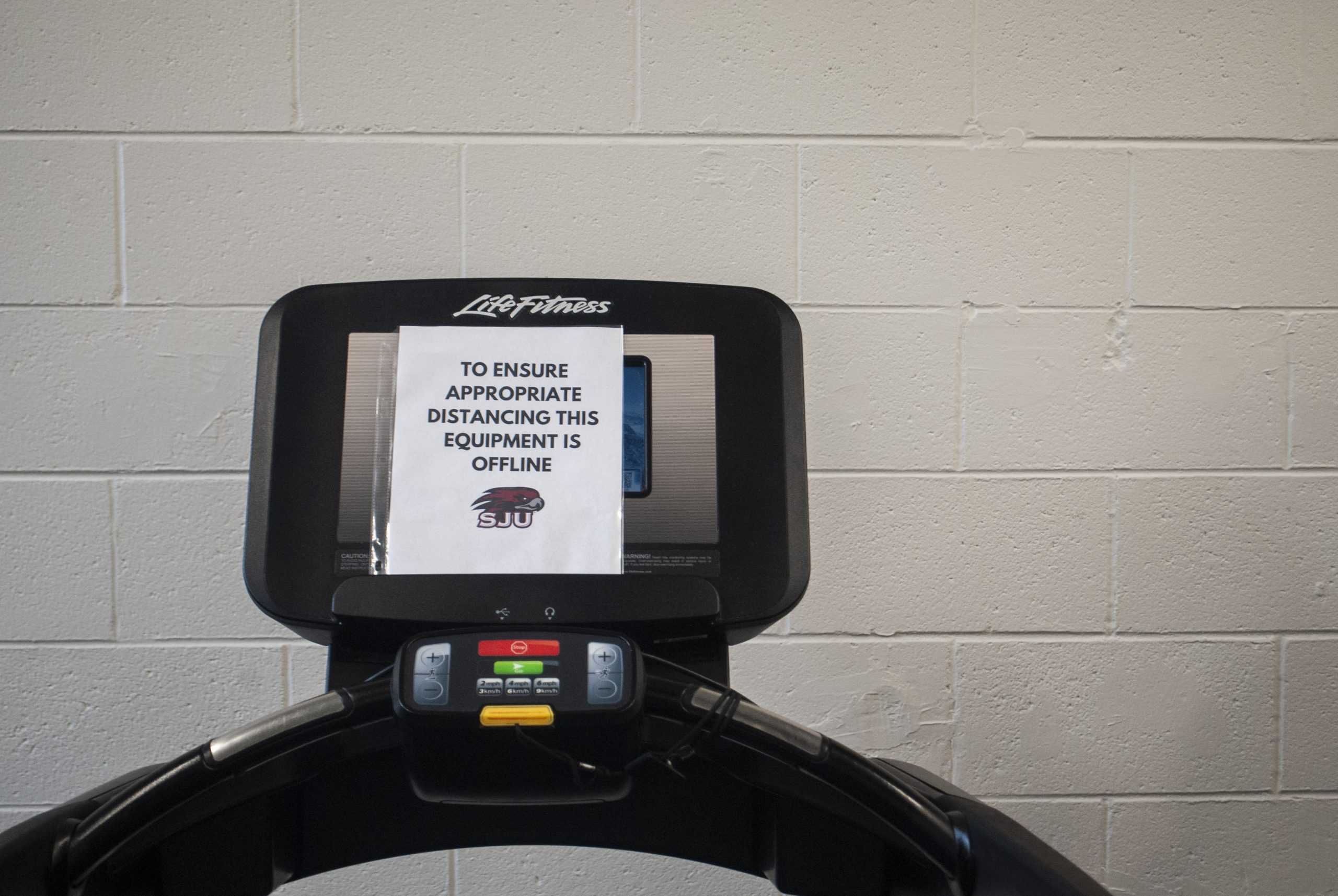For Logan Guarino ’22, who played soccer in high school and is now a member of the St. Joe’s club soccer team, weightlifting has been a part of his strength training routine to improve his game.
Guarino lifts regularly at O’Pake Recreation Center, but as with most things during the coronavirus pandemic, there have been lots of challenges.
O’Pake has two zones in the workout area, one for cardio and one for lifting. Multiple people are allowed in these zones, but they cannot be within six feet of each other.
For lifters, that means no spotting.
“I can’t do as much weight as I would like to be doing now that you’re not allowed to have a spotter,” Guarino said.
A spotter is a person who acts as a partner when someone else is lifting heavy weights. The spotter helps to prevent accidents from happening due to someone not being able to handle the weight by themselves. A spotter is not necessary for all lifting exercises, but usually is for bigger ones like benching and squatting where more weight is used.
For people who do like to lift, spotters are crucial for safety, so lifters like Guarino have had to change up their routines without one.
“Maybe I will skip [an exercise] since that’s a little more [of a] dangerous exercise for me, and maybe I’ll just hop on a machine or something like that,” Guarino said.
Frank Castano ’21, who works at O’Pake, said he noticed regular lifters have toned down their workouts in order to comply with the no spotting rule. But they are still careful when they add weight.
“They walk up to their buddies and make sure they were watching just in case,” Castano said.
Rob Smith, director of strength and conditioning for SJU Athletics, said while the number one purpose for spotting is safety, it can also be a key aspect of strength growth.
“You know a spotter is something that can be useful because it can then allow you to go to 100% of your max or even close to it, and feel comfortable that if for some reason you were to fail, you know you had someone there to help you,” Smith said.
Spotters are needed most when a lift is a safety issue or “something that puts you in a compromised position, like a bench press or a back squat,” Smith said. Without someone there helping, it is hard to reach your maximum weight.
But Anthony Trotto ’23 said not having a spotter has offered him some benefits.
“It allows you to work on yourself and pick a more conservative load that you can lift, and it causes you to be more dependent on yourself and know what you can lift,” Trotto said. “Having a spotter is always great because you can bump up the weight a little bit, but I don’t think it hinders anyone’s ability to lift weights.”
Riley Frain ’21 contributed to this story.







































